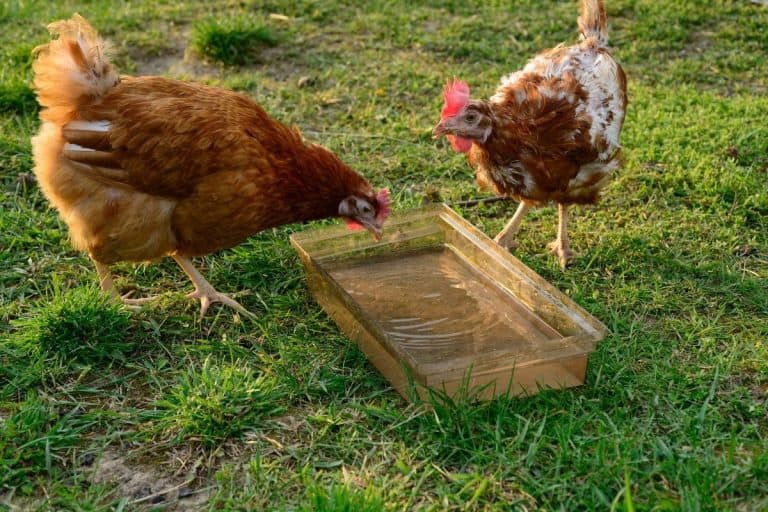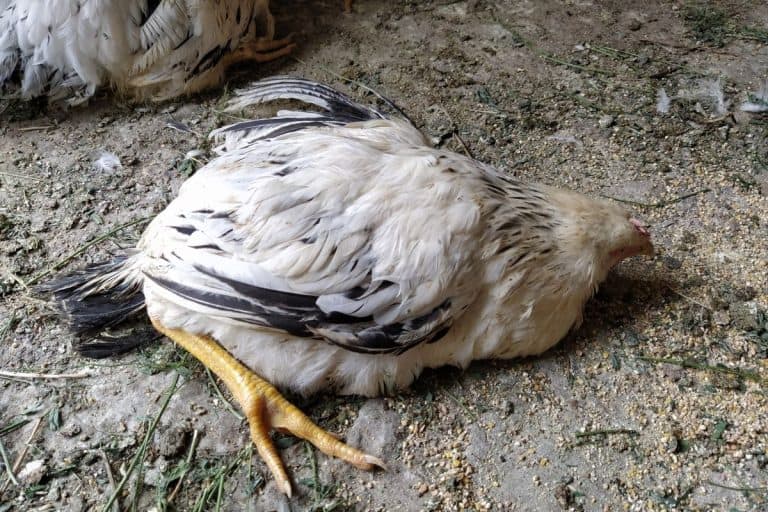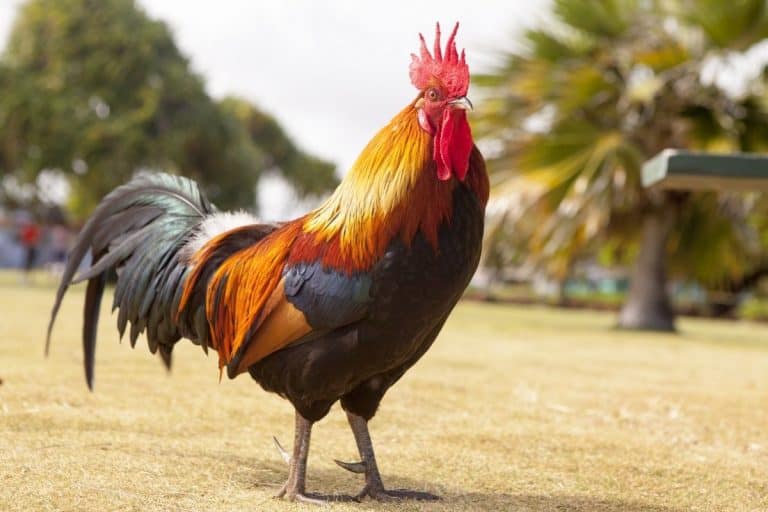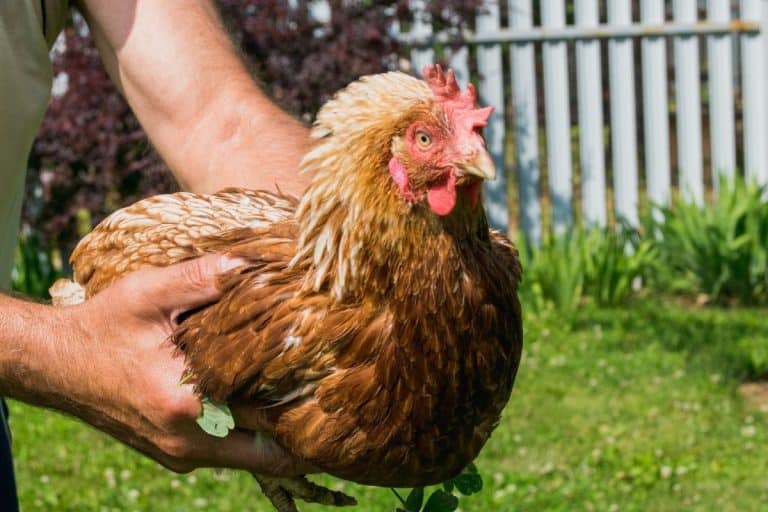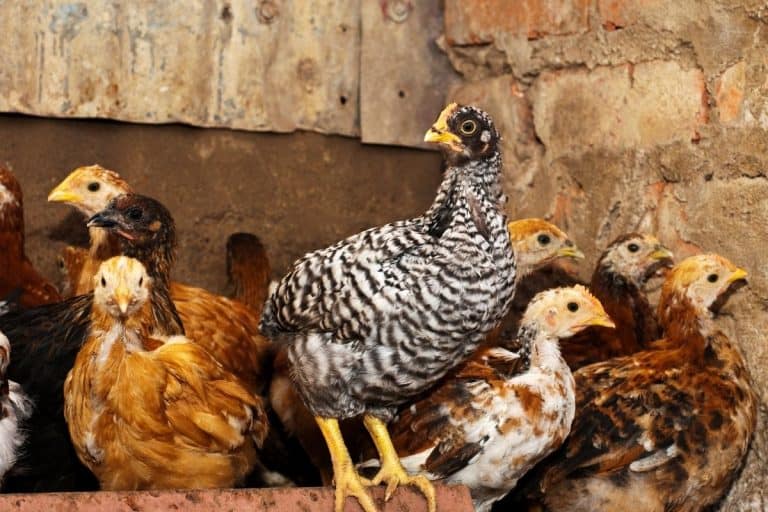Why Are Your Chickens Laying Different Size Eggs
Chickens provide us with fresh eggs and meat, which is why many people worldwide keep them. However, it is common for chickens to lay varying-sized eggs, but do you know why?
Hens can lay different-sized eggs, it’s completely normal. The eggs size in chickens is influenced by several factors, including breed, age, body condition, diseases, and nutrition.
It may be a common occurrence to collect different size eggs from your chicken coop, but it is not as straightforward as you might think. There are several reasons why chickens lay different-sized eggs, and some of them are concerning. Read on for a detailed guide about the causes why chickens lay different size eggs and how you can alter the egg size of your chickens.
Hey chicken buddies: Quick heads-up before going further! I've put together a list of stuff I use and love for my flock. If you're curious about what keeps my hens happy, click here to find out.
What Is The Standard Size Of A Chicken Egg?
Overall, there is no standard size for a chicken egg because egg size is affected by a variety of factors, one of which is breed. Different chicken breeds lay eggs of varying sizes.
On average, the egg length and diameter of small chickens breed (like Bantam) are approximately 58 mm and 40 mm. The length and diameter of an egg for a large chicken are about 62 mm and 43 mm.
Different chicken breeds lay eggs of varying sizes, but based on these figures, anything in this size range is a normal chicken egg size.

In chickens, egg size is also determined by egg weight. So, based on the weight, chicken eggs can be classified into six groups:

These include jumbo eggs (70 grams and above), extra large eggs (between 63 grams and 70 grams), large type eggs (between 56 grams and 63 grams), medium eggs (between 49 grams and 56 grams), small eggs (between 42 grams and 49 grams), peewee eggs (below 42 grams).
Egg size is critical, especially for commercial poultry farmers because larger eggs appeal to clients and fetch more money.
Wait, I have some recommendations for you!
Before you go any further, I want you to take a look at some of the recommendations I've handpicked for you. I think these are essential items you should have for your chickens flock. You can check them out and buy them directly from Amazon.
 |  | 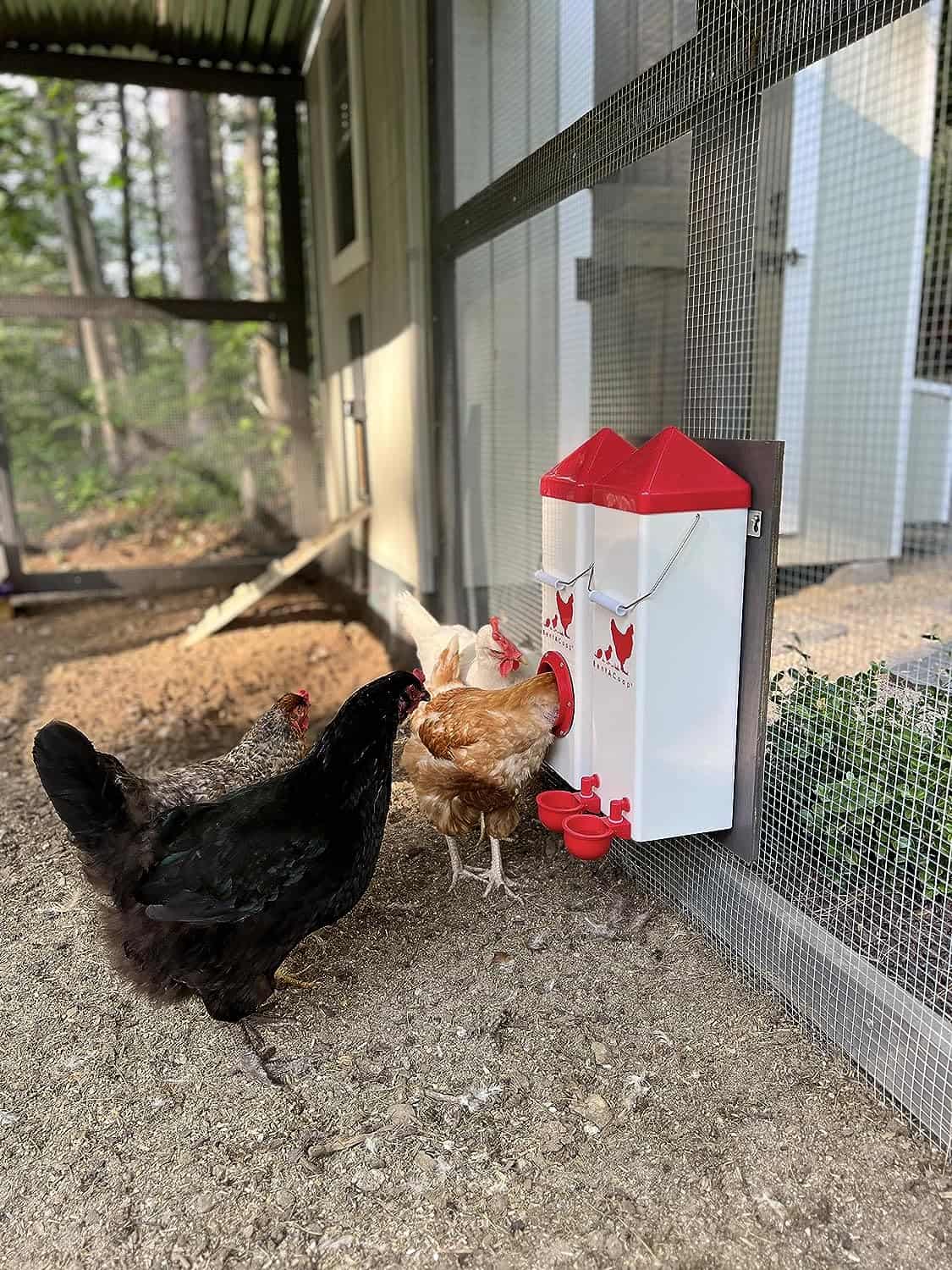 |  |
| Essential accessory for your coop | No more tripping over hoses! | Predator protection made easy | Comfort + style is possible |
What Causes Chickens’ Eggs To Be Different Sizes?
Some of the most common causes why chickens lay different-sized eggs are as follows:
1. Breed
The key factors influencing egg size are a chicken’s breed and genetics. Jersey Giants and New Hampshires are chicken breeds that lay the largest eggs.
Bantam chickens, which include Easter Eggers, Brahma, Plymouth Rocks, Sussex, and a few more, lay small eggs. Despite their small egg size, Bantam chickens are more consistent layers than big hens.
If you have a mixed flock of several chicken breeds, egg size variations will be common.

2. Age
In hens, age has a considerable impact on egg size. Young hens normally lay small eggs, which increase in size as they age and their reproductive system matures.
In general, hens over a year old tend to lay larger eggs than younger ones. As chickens age and reach the end of their laying cycle, egg size reduces.
3. Nutrition
Nutrition is important for egg development and size. Hens who are malnourished tend to lay small eggs, but hens that are fed a balanced diet lay larger eggs.
When hens begin laying eggs, I recommend increasing the protein and calcium content of their feed to help sustain their bodies. Along with protein and minerals, other elements in the hens’ diet such as methionine/cystine, digestible amino acids, linoleic acid, and total fat have a direct impact on egg size.
To improve egg size, I recommend feeding the chickens a diet with 18-20% protein content when they begin egg production.
However, once the hens have reached their peak production, giving them a high-protein diet will not result in larger eggs, therefore reducing the amount of protein to 15-17% at the end of the production cycle.
4. Stress and health issues
Stress and health concerns are two separate factors that can both have a negative impact on egg size in hens.
Any disease, particularly one affecting the reproductive system of hens, will result in decreased egg production, low-quality eggs, and smaller-sized eggs.
A hen may lay different-sized eggs due to diseases such as Egg Drop Syndrome (EDS), Newcastle Disease (ND), Avian influenza, and a few others.
Stress, on the other hand, has an effect on egg size in hens. Stress can be caused by predators, heat, improper ventilation, and a variety of other conditions.
5. Laying cycle
The size of an egg is also affected by a hen’s laying cycle. A hen begins laying eggs once she is about 18-22 weeks old, depending on the breed and season. During the early stages of the laying cycle, egg size is tiny.
When a hen reaches peak production, which occurs approximately 6-8 weeks after the start of production, the eggs are typically large. As the hen’s laying cycle comes to an end, the egg size decreases again.
6. Body weight and skeletal structure
Large and heavy hens tend to lay bigger eggs due to their good body conformation and nutrition intake. Hens with smaller bodies lay smaller eggs. Along with body weight, a hen’s skeletal structure has a large influence on egg size.
Hens with large and long bones have more space in their abdominal cavity, and their reproductive system is likewise huge, allowing them to lay bigger eggs.
If you want your chickens to have a big and developed skeleton, I recommend feeding them a high-protein starter diet until they are 8 to 10 weeks old.
7. Water intake
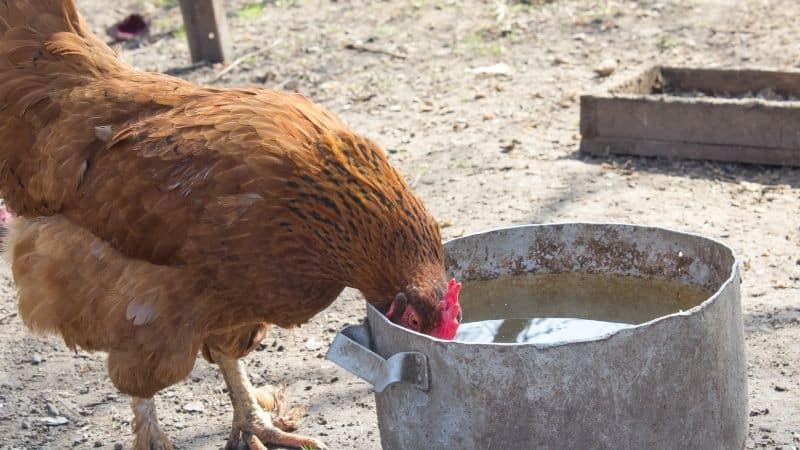
A hen’s water intake has a significant impact on egg size. In general, hens who have constant access to fresh and clean drinking water lay larger eggs than hens that do not. Because an egg is around 65% water, its size, and weight are largely determined by the hen’s hydration status.
A dehydrated hen will most likely lay small eggs. I suggest that you provide clean water for your chickens. Visit our full guide for more information on why chickens require clean water and how it affects their health and production.
8. Environmental factors
Seasonal changes, daylight hours, temperature variations, and a few others are common environmental factors that influence egg size in hens.
I strongly advise you to provide your hens with a controlled environment in which they receive enough light and the temperature and ventilation are also maintained in order to produce large eggs.
9. Ambient temperature
In general, the temperature of a shed or coop can affect egg size in hens. If the temperature is too high, the hens will consume less feed, resulting in smaller eggs.
When the temperature rises above 27 degrees Celsius (above 80 degrees Fahrenheit), hens tend to lay smaller eggs.
10. Lighting
Lighting has a considerable impact on the growth of a hen’s reproductive system, as well as the frequency of egg laying. You must provide chickens with optimal light hours, especially in a controlled environment with respect to their age, if you want good-quality eggs.
11. Storage
Many poultry owners overlook the importance of appropriate egg chilling and storage. Although storage has no effect on chicken size, it can have an impact on egg weight.
I strongly advise promptly cooling and storing eggs immediately after they are laid by hens at a temperature of 50-55 degrees Fahrenheit.
Storing the eggs at this temperature will prevent moisture loss through evaporation, as eggs have microscopic pores through which their water content can evaporate, resulting in weight loss, which can have an adverse effect on egg quality and the economics of a commercial farm.
Can The Same Hen Lay Different Size Eggs?
The same hen can produce different size eggs, which normally does not signal a health problem. Egg size can be influenced by age, laying cycle, nutrition, body weight, and environmental conditions. Young hens often lay smaller eggs than older hens.
When a hen first begins laying eggs, the size is primarily small, but when she reaches peak production, the egg size is usually large. Also, if chickens are fed a high-protein diet at the start of the laying cycle, egg size increases.
However, if the changes in egg size are accompanied by decreased activity, less feed intake, and less water intake, your hen may have a health problem, and I would recommend contacting a veterinarian.
How Can I Increase/Decrease The Size Of My Chicken Eggs?
The following are some ways of increasing and decreasing egg size in chickens:
Increasing egg size in chickens
- During the beginning of the laying cycle, feed a high-protein diet.
- Provide clean water.
- Ensure that your chickens are not stressed.
- Vaccinate your hens against diseases.
- Ensure that the housing’s temperature is suitable for hens.
- Check if the lighting and ventilation are appropriate.
- Store eggs at the proper temperature to avoid weight loss.
Decreasing egg size in chickens
I would not recommend that you try to reduce the egg size of hens, but if you really want to, here are some strategies that can help:
- Get a small chicken breed (Bantam) if you want smaller eggs.
- Smaller eggs are often laid by young hens.
- Feeding chickens a low-protein diet will reduce egg size, but I don’t suggest it because doing so will make your chickens prone to health problems.
Does Laying Large Eggs Painful For Hens?
In general, there is no scientific research or data proving that laying large-sized eggs harms or is painful for hens. Laying eggs is a daily job of mature hens and their body is well adapted to do so.
The reproductive system of a hen, including the vent through which the egg is released outside the body, is entirely lined with muscles and structures that are incredibly flexible, allowing hens to lay big size eggs with ease.
A hen may experience brief stress while laying an egg because she must focus and devote all of her energy to the process, but this is neither unpleasant nor painful to the hen.
Which Chicken Breed Lays The Largest Eggs?
Following are the chicken breeds that lay the largest eggs:
- Jersey Giants
- New Hampshire
- Black Sex Link
- Red Sex Link
- Cinnamon Queen
- Golden Comet
- Production Reds
- Leg Horns
Which Chicken Breed Lays The Smallest Eggs?
Bantam chicken breeds typically lay the smallest eggs, and these include the following:
- Easter Eggers
- Brahma
- Plymouth Rocks
- Sussex
- Australorp


